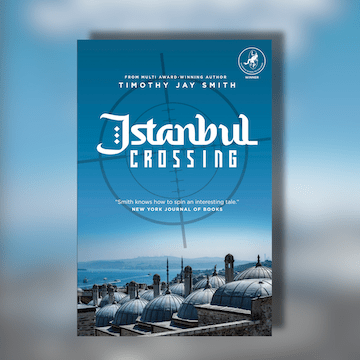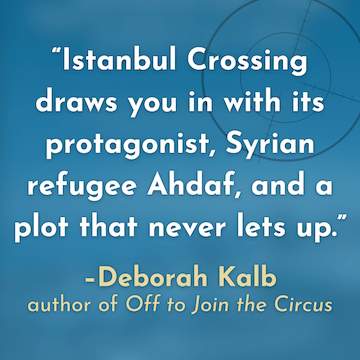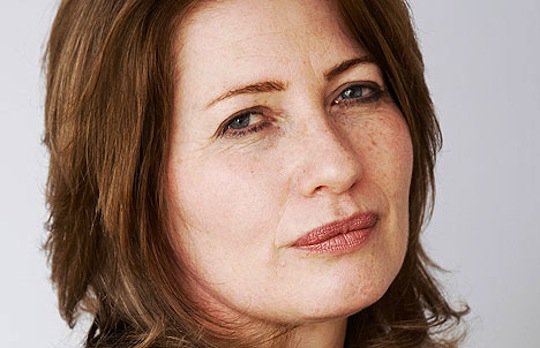
Five novels into her crime career, Belinda Bauer has become a favourite among critics and readers alike. Her 2010 debut, Blacklands won the CWA Gold Dagger in 2010. Rubbernecker, which features an anatomy student who stumbles across a crime amidst the cadavers, was recently longlisted for the 2014 Theakstons Old Peculier Crime Novel of the Year, which will be presented during the Crime Writing Festival in Harrogate this July. Bauer’s latest novel, The Facts of Life and Death, is one of CFL’s five-star picks of the last few months so we met up with Belinda to talk about kids in crime fiction, visiting a dissecting room and her next novel.
The Facts of Life has a 10-year-old girl, Ruby Trick, as the protagonist in a serial killer story, and Blacklands was about a boy who corresponds with a jailed child murderer. Why do you like to write about children?
I think children have secret lives and that really fascinates me. I loved being by myself when I was a kid in South Africa. It’s really interesting to see things from a child’s point of view, because a lot of adults have forgotten what it’s like to be a child. I wasn’t a particularly devious child, but I was certainly scheming. When I started writing The Facts of Life and Death, I felt that it was going to be my darkest book yet because it was so shocking. I realised halfway through that Ruby was quite like me – I felt almost as though I was giving away too much of myself.
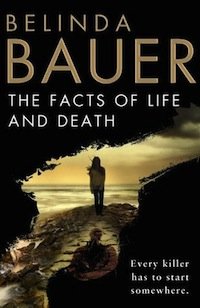 How does your former career as a journalist help in writing crime fiction?
How does your former career as a journalist help in writing crime fiction?
I did crime reporting but I also did all kinds of reporting. I went to court a lot which is always useful, spoke to the police on a daily basis. But really the biggest asset as a former journalist is just writing succinctly and having some kind of sense of objectivity about your own work.
You also had to research the reality of a dissecting room for Rubbernecker. Was that useful?
It was amazing, I couldn’t have written the same book without it. My next-door neighbours are both doctors and they both said to me that the smell is unforgettable, so I knew I’d have to go. I was so squeamish and I was so worried. But actually it turned out to be the highlight of my research.
Did you receive much feedback from readers about Patrick Fort, the student with Asperger syndrome in Rubbernecker?
An enormous amount. People really loved Patrick in Rubbernecker and so much of the feedback was – very gratifyingly – from people who had sons with Asperger’s, who said it was absolutely spot on. And that was a real thrill because the actual physical research I did was minimal, it was just really having known a certain number of people who had similar traits. So to feel I’d actually got inside that character’s head so well was really lovely.
Would you ever write another novel featuring Patrick?
I would love to do another book with Patrick, he’s definitely one of my favourite characters. But because he’s not a detective or a doctor or a judge, there’s only a certain way that you can introduce him into a story and I wouldn’t ever want to crowbar a character into a story just for the hell of it. So I’m always on the lookout for a good story that Patrick could tell.
Your psychological thrillers are often set in idyllic Devon locations but with a sense of menace. Why do you prefer the countryside?
I live in the countryside just outside Cardiff. The reason I chose Exmoor for Blacklands is because it is a kind of idyllic place where people go for a holiday, it is the front of a box of fudge kind of place. It appealed to me more to set that story of Blacklands in a place that was seemingly so friendly, so pretty, and yet show what was really going on in the people who lived there.
Would you consider writing urban crime?
The book I’m writing at the moment is called The Shut Eye, and it’s actually set in south London – the Bromley, Bickley area that used to be Kent. It’s on the fringe, it’s like the hinterland of rural England. A shut eye is somebody who believes they have psychic powers. An open eye is somebody who knows they don’t but will con you anyway. That’s the vernacular of the psychic world. It will be out next March.
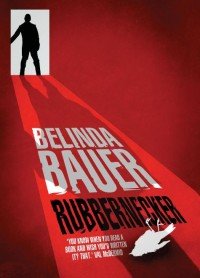 Your first three novels had a loose connection but you are known for standalone books. Do you face any pressure to write a series?
Your first three novels had a loose connection but you are known for standalone books. Do you face any pressure to write a series?
Certainly I think publishers prefer you to do a series. I think if I were the kind of writer that could confidently do a series then that would be the way to go, because readers love them too. But I realise that because I delve into my characters so deeply emotionally, to then keep that character going in the next book and the book after that and the book after that, at some point I’ll be short-changing the reader because I’ll have in mind that there’s always going to be another book.
Finally, you have a uniquely sardonic and inventive style in crime fiction. Where do you think that comes from?
When we moved to South Africa in the 1970s, we didn’t even have television for the first five or six years, so I was always a bookworm and I always just had the most amazing imagination. I could just entertain myself for hours and hours, I used to lock myself in my bedroom playing all day long. My sisters used to get so frustrated I used to charge them to come into my room to play with me. And when the half hour was up, even if we were having a good time, I would tell them to get out because my games in my head were better than any game I would play with somebody else. I guess I was destined to make stuff up for a living.







